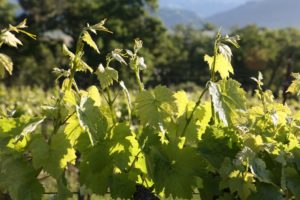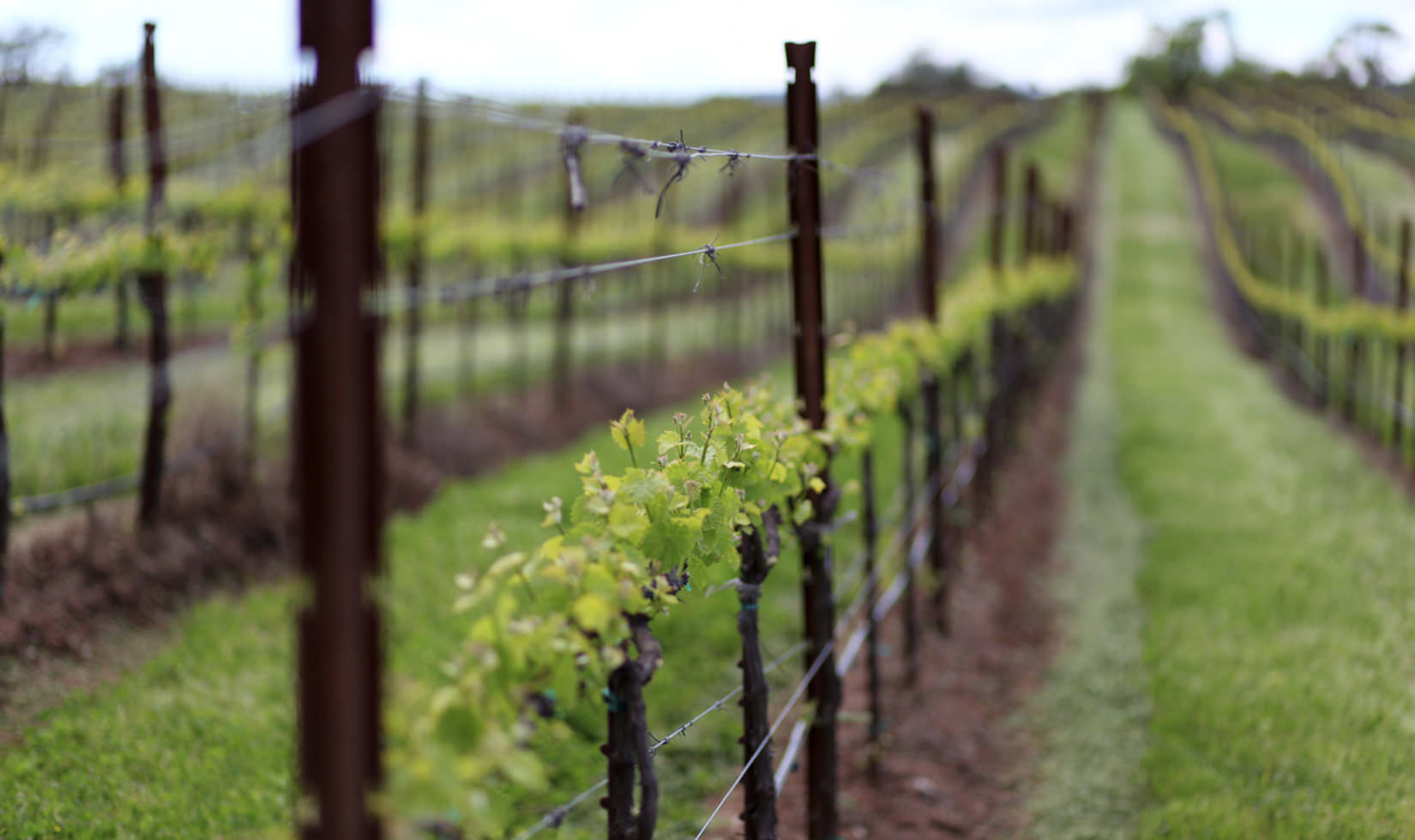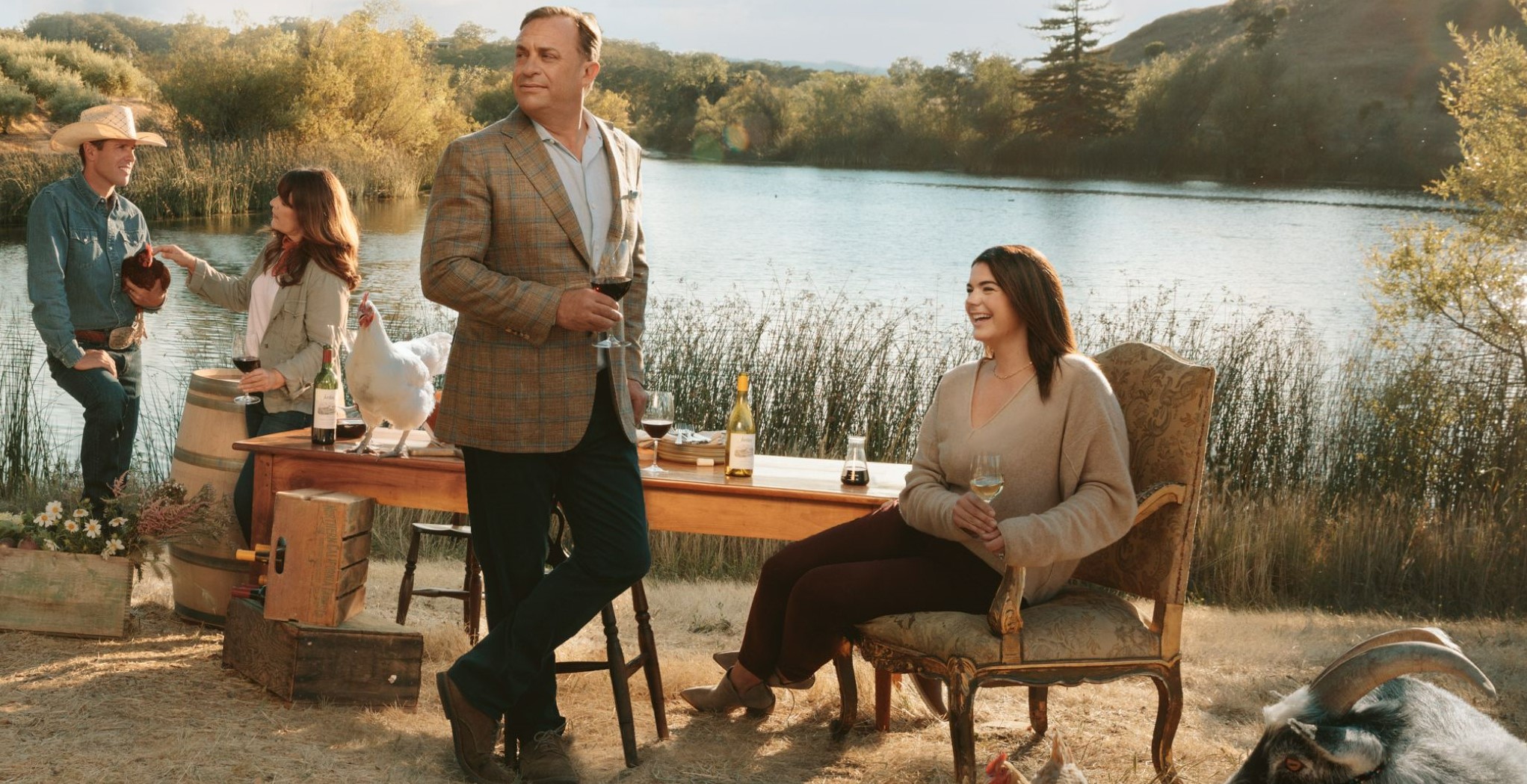Can you hear that? Those are the exhales of the winegrowers, echoing off the west walls of the Mayacamas Mountains throughout the Alexander Valley. As the nighttime temperatures continue to inch away from any danger of spring frost, 
The early stage of budbreak is complete for all of our vines. Remaining energy reserves from last year’s photosynthesis, which had been tucked away all winter, have stepped up to deliver on their primary duty; 2012 would be so proud. The amount saved up was just enough to get the first round of lime-colored leaves out of the buds and opened towards the sky and its ever-increasing daylight hours. With the new, green, plant tissue exposed, the sun has once again claimed the role of primary energy source.
 Just because this source has been transferred doesn’t mean the grapevine gets to relax. Each and every developing shoot is biologically programmed to aggressively compete against its neighbor for the sun’s available rays, growing up to five centimeters per day just to stay ahead. This second stage, referred to as rapid shoot development, is currently underway in the vineyards. The grapevine, technically a liana (as it is a woody tree climber mostly found in temperate, non-tropical forests), is built specifically for this purpose. Investing little in supporting structures, this tendril climber is efficient. Unlike the 1-3% for trees, grapevines “lianas” invest from 30 to 60% of their dry-weight gain into leaves. They are energy factories.
Just because this source has been transferred doesn’t mean the grapevine gets to relax. Each and every developing shoot is biologically programmed to aggressively compete against its neighbor for the sun’s available rays, growing up to five centimeters per day just to stay ahead. This second stage, referred to as rapid shoot development, is currently underway in the vineyards. The grapevine, technically a liana (as it is a woody tree climber mostly found in temperate, non-tropical forests), is built specifically for this purpose. Investing little in supporting structures, this tendril climber is efficient. Unlike the 1-3% for trees, grapevines “lianas” invest from 30 to 60% of their dry-weight gain into leaves. They are energy factories.
 To ensure that the shoots selected during winter pruning get the maximum amount of resources, Ranch Manager Brent Young and the vineyard crew have completed the incredibly labor intensive process of removing every competing water sprout and sucker from the vines that was not intended to be a part of this year’s growth, a process actually termed “suckering.” The ease at which these unwanted buds are brushed off is a scary reminder of the damage an untimely hail storm could inflict on the vine growth we want to keep. The rapid development will continue until fruit set in early summer, after which, the rate of growth will slow down but will continue up to the point of veraison, when the energy focus transfers from vegetative growth to the ripening of the grapes.
To ensure that the shoots selected during winter pruning get the maximum amount of resources, Ranch Manager Brent Young and the vineyard crew have completed the incredibly labor intensive process of removing every competing water sprout and sucker from the vines that was not intended to be a part of this year’s growth, a process actually termed “suckering.” The ease at which these unwanted buds are brushed off is a scary reminder of the damage an untimely hail storm could inflict on the vine growth we want to keep. The rapid development will continue until fruit set in early summer, after which, the rate of growth will slow down but will continue up to the point of veraison, when the energy focus transfers from vegetative growth to the ripening of the grapes.
 Not to take away from the glory of the 2013 growing season, but in the axis of each leaf on the developing green shoots is a newly forming bud that will potentially represent the 2014 growing season. Much of next year’s season is dependent on the amount of sunlight these developing buds receive during this time. Looking perhaps too far ahead, it appears that 2014 is going to be a good one.
Not to take away from the glory of the 2013 growing season, but in the axis of each leaf on the developing green shoots is a newly forming bud that will potentially represent the 2014 growing season. Much of next year’s season is dependent on the amount of sunlight these developing buds receive during this time. Looking perhaps too far ahead, it appears that 2014 is going to be a good one.
The vines are not the only asset to be going through a stage of rapid development. In the winery, the new bottling line has experienced a stage of rapid growth as well. With the crew of Italians working nearly round the clock, the dress rehearsals for the impressive system are already underway. This would explain the explosion of finishing-touch Chardonnay tasting sessions by the winemaking team, as the bottling of the 2012 Chardonnay will not be far behind the completion of the new line. These last tastings are the final checks and balances, ensuring the varietal fruit character, acidity, minerality, and the texture of the attack, mid palate, and finish are all precisely balanced. This story of place and time, written by 2012, directed by Rob Davis, and featuring Chardonnay from the Russian River appellation, will soon be wrapped up. It is unfortunate we have to wait until next year to enjoy it.


